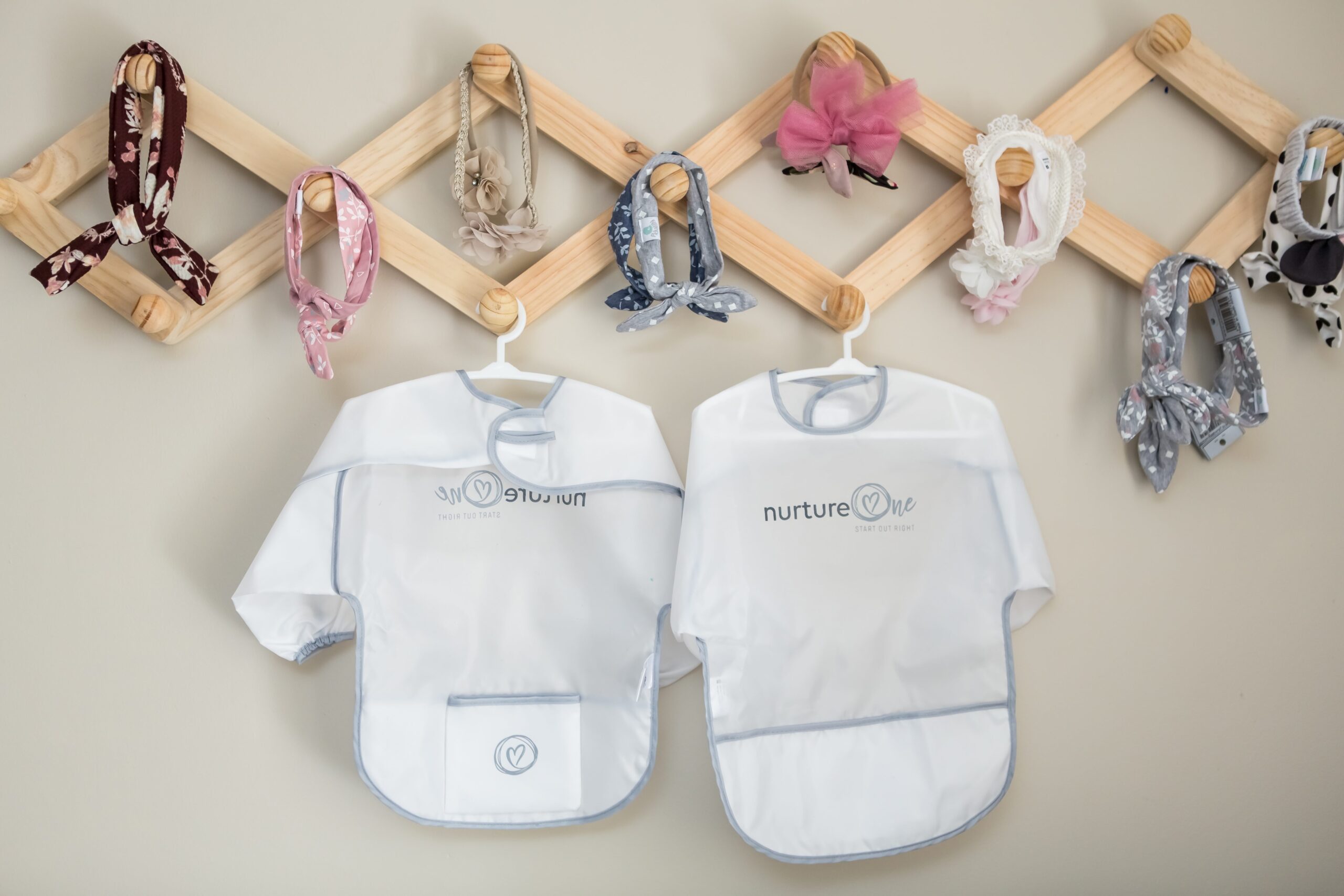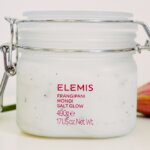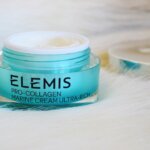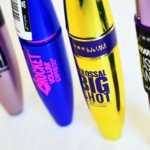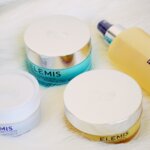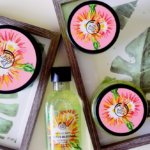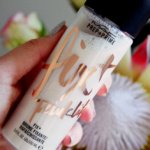4 Reasons to Embrace the Mess: How Letting Your Baby Get Messy with Food Boosts Development
By Jen Spiro
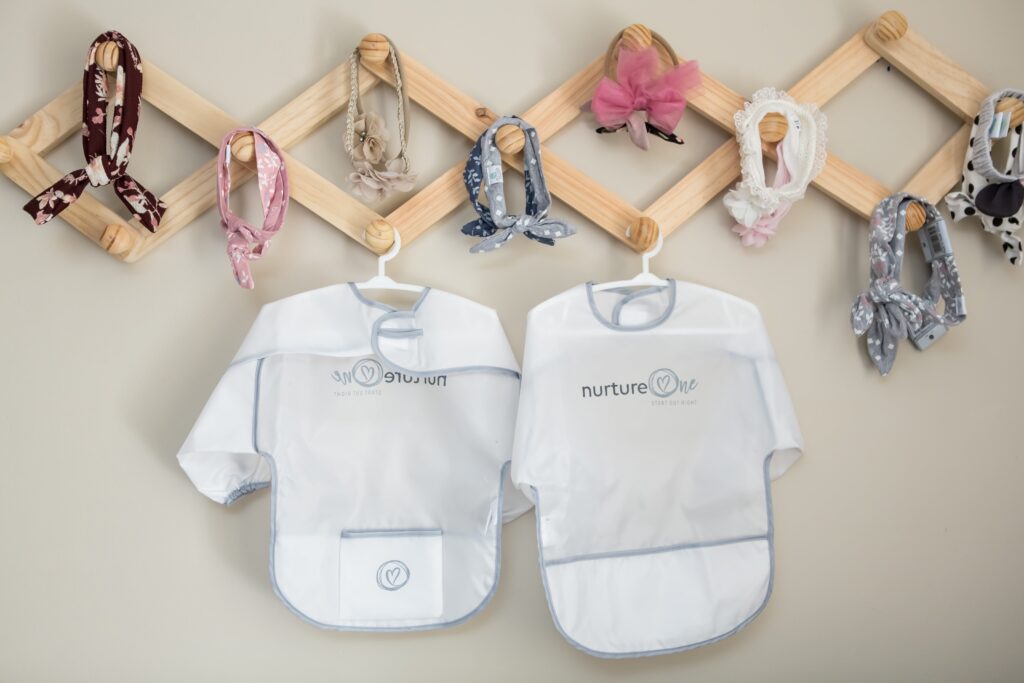
When you first introduce solids to your baby, it’s usually easy to keep things clean because they aren’t very mobile yet. However, as the months go by, they will start swiping the spoon and blowing raspberries into their food, which can quickly become messy for everyone! I understand that this can be overwhelming and letting them get messy might seem like more work than it’s worth. Some parents feel that allowing their children to sit with food all over them, even during meals, is neglectful. But I encourage you to embrace the mess! Let them get food on their hands, in their hair, and all over their face—and try not to make any disgusted faces while they’re doing it. Here are four good reasons why:
- Powerful Sensory Play
Mealtimes with babies are more than just about eating. They also provide their first experience with active sensory play. Babies are born with five times as many nerves in the brain devoted to receiving and organizing sensory information compared to those responsible for movement. This means babies use their senses to explore the world around them. While you can’t let your 7-month-old play in a sandbox or use finger paints because they might eat them, messy textures during mealtime offer meaningful tactile stimulation that helps their brains process and respond to new information. Babies will actively seek out these sensory experiences as part of their curiosity and exploration. - Learning How to Self-Feed
When babies get their hands messy with food, they eventually realize that putting their fingers in their mouth results in food. This revelation helps them understand that they can feed themselves. Although it may take months before they can spoon-feed themselves, those early tastes from their fingers lay the foundation for this skill and can lead to quicker progress. This process helps develop fine motor skills as they learn to use their hands and fingers in a controlled manner. If your baby is getting messy but not bringing their hand to their mouth, gently show them how to do it. - Preventing Tactile Defensiveness
Without exposure to different textures, children can become sensitive to new or unfamiliar sensations over time. If you keep your baby very clean during meals, they might find getting messy uncomfortable because it’s a new sensation for them. While tactile defensiveness is not always learned—some children are naturally tactile defensive—constant wiping and keeping them clean can contribute to discomfort. Allowing them to experience different textures helps prevent this sensitivity. - Making It Positive
Allowing babies to get messy can make mealtimes more relaxed and enjoyable. Introducing solids should be a positive experience, fostering a healthy relationship between your baby and food. If you’re constantly fighting to keep them clean or trying to pin them down to wipe their face after each bite, mealtime can become stressful for both of you. Aim to make mealtimes a positive and enjoyable experience.
The nurtureOne Fuss Free bib is designed to help you let your baby explore their food and develop a healthy, happy relationship with eating. The bib encourages self-feeding, promotes hand-eye coordination, and nurtures early food curiosity. It protects your baby’s clothes, is easy to wash, and dries quickly. It also includes a convenient pouch for easy storage and travel.
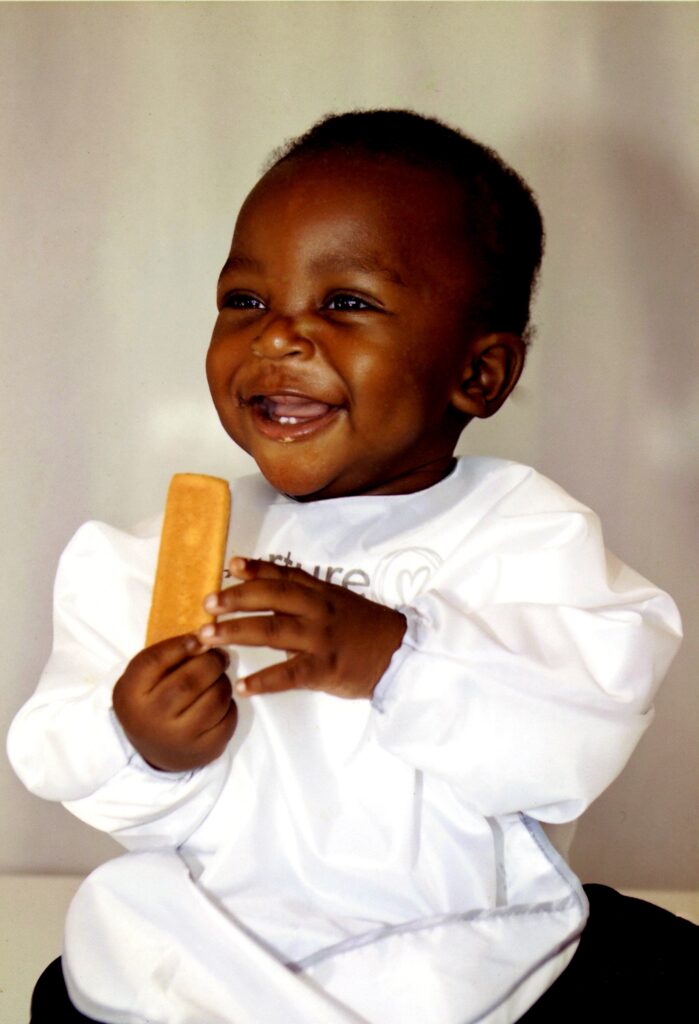
As an easy weaning snack, try this recipe from the recipe book Weaning Sense by Meg Faure of Parent Sense, and clinical paediatric dietitian Kath Megaw, founder of Nutripeads
Oat Teething Biscuits
1 cup whole oats
I cup oat porridge flour (pulse oats in a blender till it’s ground to a rough powder)
1 tsp baking powder
1/4 tsp salt
1/4 tsp ground cinnamon, ginger, cardamom or nutmeg*
2 overripe bananas mashed
1 tsp vanilla extract
3 tsp coconut oil
- Preheat the oven to 180C, and grease baking sheet or line it with baking paper.
- Combine the dry ingredients in a mixing bowl. Mix mashed bananas vanilla extract and coconut oil, and stir into the dry ingredients. Mix well.
- Drop spoonfuls of the mixture onto the prepared baking sheet and bake for 12-15 minutes.
- Allow biscuits to cool, and store in an airtight container.
*Hold back on the spices if your little one is sensitive or slow to warm up.
nurtureOne ™ products are available at https://nurtureone.co.za as well as a range of well-baby clinics and local baby shops – see the stockist tab on the website for your nearest.
ABOUT nurtureOne ™:
Researched, designed and developed by medical practitioners. Endorsed by Occupational, Sensory and Developmental Therapists. nurtureOne ™ are dedicated to helping parents provide a tranquil, secure resting environment for their newborns. Promoting a seamless integration of baby into our world.
For more information, please visit https://nurtureone.co.za
https://www.facebook.com/nurtureonenesting/
https://www.instagram.com/nurtureOneNesting/
Note to editor:
Jen Spiro, co-founder and co-developer of the nurtureOne™ nesting cushion, is available for interviews and speaking opportunities on a wide variety of baby and parenting subjects.
“Jen Spiro – B.Sc OT (University of Cape Town), B.Soc.Sc Social Work (University of Cape Town)
Jen′s passion lies in meeting the needs of babies and their caregivers. She has brought this enthusiasm to her work in paediatrics for 20 years. After qualifying with both social work and occupational therapy degrees, she specialised in working with newborn babies and children with learning difficulties. She has worked in community-based well baby clinics, provided occupational therapy intervention for children with learning difficulties, and run social skills groups with children and adolescents. She has also worked in private practice. Her postgraduate studies have led to a holistic philosophy. She integrates various approaches to provide children with appropriate sensory integration, neurodevelopment and emotional and or cognitive intervention. Being a mother of two, together with her work and studies. A wealth of insight into the emotional, physical and developmental needs of babies. Jen believes that providing the correct environment for your baby is of utmost importance.”

